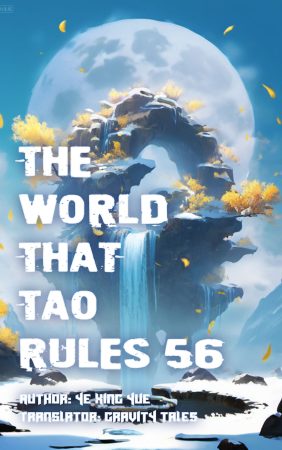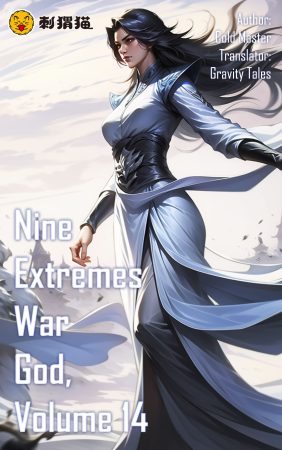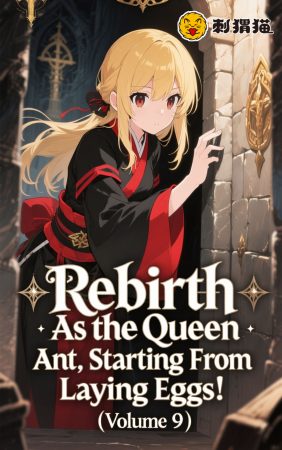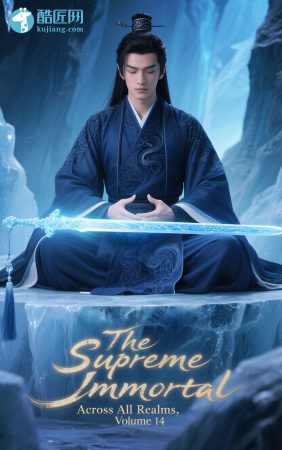Chapter 124: Khrushchev
Our Discord Server: https://discord.gg/PazjBDkTmW
You can buy coins here to unlock advanced chapters: https://gravitytales.com/coins-purchase-page/
Advanced chapter until 300+ at patreon.com/caleredhair
Soviet Union, Moscow, the Kremlin. The morning sun shone on the characteristic domes of the palace, reflecting a captivating, multicolored light.
With a loud command, the two heavy main gates of the palace were pushed open by soldiers, and three luxurious Mercedes sedans drove slowly into the Kremlin. All the soldiers snapped to attention and saluted, their eyes following the three cars with the utmost reverence.
The cars came to a slow, steady stop. The door of the front car was opened, and two expressionless young soldiers jumped out. One of them had a deep scar on his face. Without a sideways glance, the two young soldiers quickly moved to either side of the middle car. What was breathtaking was that the steps of the two soldiers as they disembarked were perfectly synchronized.
Three more men got out of the rear car, two of whom were carrying German-made submachine guns. They, along with the two men from the front car, formed a small square, guarding the middle car. The four men’s cold gazes scanned the surroundings, as if searching for any suspicious targets.
The other person from the rear car quickly walked to the back door of the central car, respectfully pulled it open, then clicked his heels together and gave a standard Soviet military salute. “Comrade Khrushchev, we have arrived at the Kremlin!”
Khrushchev, already slightly balding, ducked out of the car. He straightened the dark green military uniform he was wearing, touched the several medals pinned to his chest, and looked around with his two eyes before finally striding toward the most sacred place in the entire Red Soviet Union.
Every soldier at every guard post he passed stood at attention with their chests puffed out, but his expression still looked dissatisfied. In Khrushchev’s mind, all soldiers should be like those in Germany, shouting “Long live” to the sun in their hearts, Comrade Stalin.
The door to Stalin’s office was finally pushed open, and Khrushchev at last saw his leader, Stalin, whom he had not seen for a long time. Without the slightest hesitation, he stood at attention, saluted, and greeted him loudly, “Long live the great Comrade Stalin!”
“Oh, Comrade Khrushchev,” Stalin said, placing the pipe he was holding on the desk. He then pointed to the sofa on the side. “I am not Akado. Revolutionaries should not engage in this kind of personality cult. Please, sit.”
Khrushchev noticed a young, expressionless officer standing behind Stalin. This officer stood with his hands behind his back and didn’t even glance at Khrushchev when he entered the room. Seeing this icy demeanor, Khrushchev knew that this officer was also a graduate of that mysterious “Greater German Panzer Command Academy,” the hell that the Soviet and German militaries called the “Wolf Rider Academy.” This school was one of the most secret parts of Soviet-German cooperation.
Although Stalin’s words were critical, his tone held no hint of blame. The ends of his two trademark mustaches were slightly upturned, indicating that he was in a very good mood.
“Yes! Comrade Stalin! You are forever our guiding light! Our great leader of the Soviet people,” Khrushchev continued. “You summoned me back in such a hurry this time; there must be some important task you need me to complete. Please rest assured! I will definitely complete the mission!”
“I have read the articles you wrote in the party newspaper, Comrade Khrushchev. Your thoughts are in line with mine! Our party, our country, is filled with all sorts of traitors and sellouts. They are eating away at the fruits of the Soviet victory! This is yet another form of counter-attack against us by those capitalist bedbugs.”
“Your wisdom is beyond doubt! Comrade Stalin! With your leadership, the enemy’s conspiracy cannot possibly succeed!” Khrushchev said after a moment’s thought. “Since you have also recognized the crisis, what can I do? Or rather, what do you need me to do to save our country?”
“Comrade Khrushchev, you know that our Seventeenth Congress has just passed a new party constitution,” Stalin said, surprisingly not giving a direct order but instead talking about the recent national conference.
“The congress summarized the party’s work over the past period, pointed out the fact that socialism has achieved a decisive victory in all economic and cultural sectors, and stated that the party’s general line has achieved a complete victory,” Stalin said, walking back to his desk. He tapped his pipe on the table and continued, “However, for me, this congress was not a victorious one.”
“I knew it! Someone with ulterior motives is trying to undermine your leadership! This is a betrayal of the communist cause!” Khrushchev also stood up, clenching his fists, his voice filled with anger and unease.
“There are many things you do not know, Comrade Khrushchev. During the conference, a special meeting was held, attended by delegates who were concerned about the state of the country, especially agriculture,” Stalin said, pointing to the meeting minutes on his desk. “During the secret ballot, my name was crossed out more times than anyone else’s… The final result was that I was not elected at all. It was only when it was decided at the end to increase the number of members of the Central Committee that I barely managed to become one.”
“This… this is… a shameful betrayal of the revolution!” Khrushchev said angrily. “Have they forgotten everything you have done for this country?”
“At the Seventeenth National Congress, the most popular central leader among the delegates was Kirov. When he finished his speech, the delegates gave him a standing ovation, and the applause and slogans like ‘Long live the Leningrad proletariat’ lasted for several minutes,” Stalin said dejectedly. “If nothing unexpected happens, it won’t be long before you will be working under his leadership.”
Hearing Stalin refer to Kirov by his name, without the “Comrade,” Khrushchev’s eyebrows twitched. He was a high-ranking cadre who had been promoted single-handedly by Stalin. If Stalin fell, his own fate was easy to imagine.
“Comrade Stalin, we cannot just sit here and wait to be destroyed. Haven’t we long prepared a special force for a time like this?” Khrushchev glanced at the young officer standing behind Stalin, paused, and then said, “We should think of something! At the very least, we still have absolute command over the graduates of the Wolf Rider Academy! These soldiers are the best. You should know this better than anyone!”
“But I cannot use underhanded means against a former comrade-in-arms. If word of this gets out, it will be detrimental to me,” Stalin said, frowning and shaking his head.
Khrushchev, however, understood the true meaning of this statement. “There will be no rumors that are detrimental to you. The Wolf Riders will solve all problems in the shortest possible time, without leaving any evidence.”
Stalin turned his head slightly and asked the officer behind him, “Vasil, can you guarantee the success of the operation?”
“I can,” the young officer behind Stalin replied immediately, his voice devoid of any emotion, before falling silent again.
“What will be the losses?” Stalin asked again.
The officer replied once more in his icy voice, “Thirty men.”
“I can personally plan and command this operation! Please rest assured!” Khrushchev added.
Stalin nodded in satisfaction, then unexpectedly changed the subject. “I like these soldiers trained by the Germans. They are truly very reliable subordinates.”
“They are born warriors! Comrade Stalin! They are warriors who have given up everything for the motherland!” Khrushchev also greatly admired these specially trained soldiers and nodded in agreement.
“How are things on the German side?” Having finished with the most important matter, Stalin asked about other work issues.
“Comrade Stalin, the Germans have recently intervened in the Spanish Civil War. Their combat proficiency is clearly higher, and we have lost many excellent soldiers,” Khrushchev reported. “However, we have also surpassed them in many areas. For example, our independently developed T-26 tank performs much better on the battlefield than Germany’s Panzer II. The performance of our I-16 fighter has also overwhelmed the Italian fighters. The Germans surely did not expect that we could develop so quickly.”
“Very good! Use the German methods, with our improvements, to train more Wolf Rider soldiers! Perfect soldiers plus perfect weapons, and soon we will be able to realize our long-cherished wish!” Stalin said, waving his arms happily.
“Long live the great Soviet leader, Comrade Stalin!” Khrushchev shouted. He then switched to a farewell tone. “Then I will take my leave. After I have handled this entire matter, I will come to greet you again.”
Stalin nodded and waved his hand. Khrushchev turned and walked out of Stalin’s office.
In the hallway, Khrushchev met Marshal Tukhachevsky. The two men passed each other, nodding their heads.
Tukhachevsky was there to report on the Soviet Union’s aid and losses in the Spanish Civil War. The moment they met, he brought a dark cloud over Stalin’s cheerful morning. “Comrade Stalin! We have lost 1,739 officers and men in Spain. 91 fighter planes, 7 transport planes, and 16 bombers have been shot down. We have lost a total of 184 tanks.”
“All these losses were provided free of charge! This level of loss is unbearable for us,” Tukhachevsky said after a pause. “We should never have supported the Spanish Republican Army for free in the first place.”
This undoubtedly hit a sore spot for Stalin, as the matter of providing free aid to the Spanish Republican Army and the International Brigades was something he had personally decided. “Marshal Tukhachevsky! Please watch your words! You may leave for now. I am aware of these losses. I will consider our next steps.”
“Comrade Stalin, you…”
Tukhachevsky wanted to say more but was cut off by Stalin. “That’s enough! Leave.”
(Note: There are many accounts of the relationship between Stalin and Kirov. These accounts are completely contradictory. Some sources say Stalin saw Kirov as his most important successor; others say Kirov’s prestige threatened Stalin, so he was eliminated. For the sake of the story, this novel has adopted the more dramatic version of their relationship. I ask friends who are familiar with history not to delve too deeply… Dragon Spirit really has no stance here, just chose what I thought was a better plot option. It does not affect the main story in any way.)












